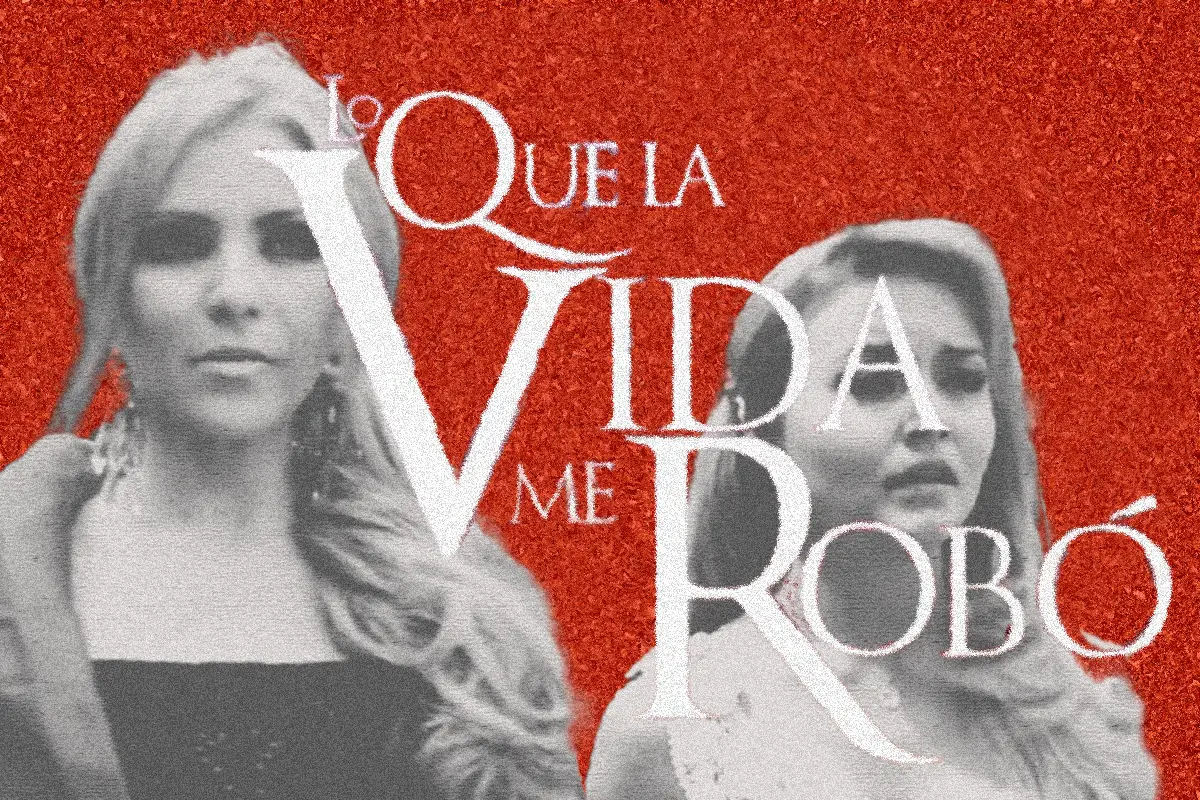When thinking of melodramatic Mexican telenovela title sequences that feature a slap to the face, many might think of “Abrazame Muy Fuerte,” “Fuego en la Sangre,” “Destilando Amor,” or “La Fuerza del Destino.”A theatrical slap is particularly showcased in the title sequence of “Lo que la vida me robó,” one of the most successful telenovelas from 2014. The telenovela is nevertheless nostalgically remembered and laughed about on social media platforms despite the gender violence.
View this post on Instagram
“Lo que la vida me robó” or “What Life Stole From Me” is a retelling of the 2003 telenovela “Amor Real,” which takes on the love triangle and arranged marriage tropes. Both are about a young woman forced into marriage for wealth while being enamored with another man. The original story comes from the 1960 novel “Bodas de Odio” or “Weddings of Hatred” by Caridad Bravo Adams, indicating how far back the normalization of hostility in romantic relationships and families in Mexican entertainment goes.
“Lo que la vida me robó” follows upper-class Montserrat and her family on the brink of ruin due to her brother’s gambling. Graciela, Montserrat’s mother, arranges a marriage between wealthy Alejandro and her daughter to maintain social status and appearance. This news is unfortunate to Montserrat, who has been in a secret relationship with poor Jose Luis.
Montserrat begins to rebel against her husband and mother, which causes a strained relationship between them. The slap in the title sequence directly hints at the strict obedience and discipline encouraged by Graciela. Montserrat’s husband and mother hold over expectations enrooted in what is called “Marianismo.”
The term “Marianismo” was coined by Evelyn Stevens in 1973 and originates from the religious values indoctrinated by colonialists among Latin Americans. Mexican women are prompted to be self-sacrificing, spiritual, pure and passive like the Virgin Mary. If Montserrat had been obedient, she would have avoided her mother’s disgrace and instances of violence.
While Marianismo is the phenomenon that describes the expectations of women, Machismo is that of their male counterparts. Machismo enforces the assumption that men are ingrained to be dominant, assertive and powerful for the gender identity to be maintained. This aspect is shown in numerous telenovelas and is displayed not just by the male villains but also in love interests like Alejandro and Jose Luis. Alejandro is shown to be prone to brutality, constantly insulting Montserrat, violenting manhandling her and breaking items. This treatment usually occurs because Montssterrat fights back and acknowledges that she is a possession. She says, “I’m a wife you had to buy because you’re less of a man,” which causes him to fling her onto the couch. Montserrat lives in a state of fear, and audiences wouldn’t be surprised if he ever hit her, even though he never “technically” hit her.
@lqlvmr123 monserrat se va a escapar y Alejandro la descubre #parati #loquelavidamerobo #monserratyalejandro #parati #loquelavidamerobo #monserratyjoseluis #monserratyalejandro #loquelavidamerobo #parati #monserratyjoseluis #monserratyalejandro #parati #loquelavidamerobo #monserratyjoseluis #monserratyalejandro #parati #loquelavidamerobo #monserratyjoseluis #monserratyalejandro #parati #loquelavidamerobo #monserratyjoseluis #monserratyalejandro #parati #loquelavidamerobo #loquelavidamerobo #monserratyjoseluis #monserratyalejandro #TikTokFashion #parati #parati #parati #parati #parati ♬ Valentina en Azul – Alex sirvent
Unfortunately, Montserrat and the other women in the show endure persistent gender violence driven by Marianismo and Machismo. These instances almost seem like punishments for their disobedience. In one scene, Alejandro rapes Montserrat to claim her after she attempted to escape the house. In another endeavor to escape, Montserrat is sexually assaulted by one of the workers in the house. Nevertheless, Alejandro is the romantic interest and never the villain to the audience. He ultimately wins Montserrat over.
@tlnnovelasmexfanss Alejandro enfrenta a Montserrat #angeliqueboyer #sebastianrulli #loquelavidamerobo #novelasmexicanas #novelaslasestrella #tlnnovelasmexfans ♬ sonido original – Tlnnovelas_mex fans
Alejandro’s violent behaviors and rape are overlooked. Alejandro’s protective and kind treatment enamors audiences and Montserrat. YouTube comments from the video discuss “Team Alejandro,” “Melting for this couple” and “God, how can you not love this man?”
Her secret lover doesn’t fare much better. While seeming like a safe place away from her family’s expectations and husband’s familiar cruelty, Jose Luis often degrades Montserrat for not leaving her situation. He also attempts to rape her in a rage of jealousy.
There are about 50 scenes of gender violence per episode in telenovelas according to a study in 2008. Similar to the instances in telenovelas, gender violence is not infrequent in Mexico. The National Institute of Statistics and Geography (INEGI) has reported that violence towards girls and younger women increased spontaneously by 75 percent from 2010 to 2014, and 66 out of 100 women have encountered sexual, physical, financial, emotional or psychological abuse. In 2022, MPI noted that family violence and sexual assault crimes have consistently increased with over 70% of women experiencing violence.
The violence is an expectation, not a flinching surprise. And an ideal woman accepts the ideal man’s roughness. Most audiences take these scenes of violence in stride, either bypassing them as necessary for the plot or mocking the telenovelas for their displays of blatant Machismo.
Life imitates art in Mexican communities, where women are possessions for masculinity. Montserrat, the other women, and the men in the telenovela become habituated to violence. Eventually, Montserrat slaps Jose Luis and her mom, but these are just regular family dynamics.
As the title indicates, telenovelas often demonstrate what life takes from their audiences, specifically Mexican individuals and nuclear families. Unfortunately, gender expectations have taken away the lives and dignity of women. Conversations about these scenes in the telenovelas and among audiences are necessary for confronting Marianismo and Machismo ideals. How would the introductory scene be seen if the telenovela was not drenched in misogyny?

















